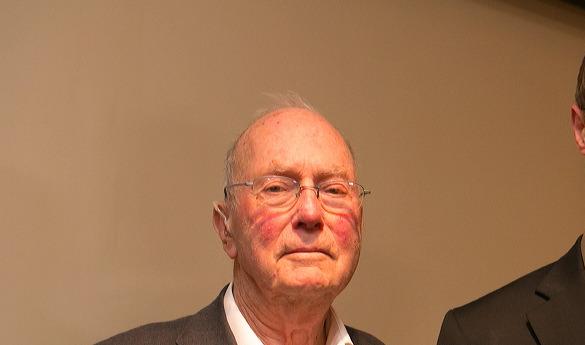Mason senior wins international science essay contest
Karl Haislmaier, a George Mason University senior physics major, won $25,000 in an international science essay contest in October 2012.
Haislmaier’s essay, entitled The Emergence of Complexity in the Universe as Viewed from a Holistic Perspective, won second place in the New Cosmic Frontiers astronomy essay contest.
“Honestly, I think it's an awesome encouragement to an enthusiastic undergrad (myself) to be awarded $25,000 for thinking about science,” Haislmaier wrote in an email.
The essay prompt asked students “what is the origin of the complexity of the universe?” Haislmaier used his knowledge and interests in astronomy and philosophy to answer the question in his essay.
When asked “Why philosophy?” Haislmaier responded, “Why not? One simply can't separate science from the philosophical perspective of those doing it.”
“I simply argue in the essay that the predominant philosophical perspective in cosmology (and physics in general) these days precludes a complete understanding of the physical universe...I proposed that a holistic view of nature (i.e., that whole things can be unique in themselves, as a whole) might explain nature's seeming tendency toward complexity,” Haislmaier wrote.
Haislmaier heard about the contest from Jessica Rosenberg, his former astronomy professor.
“I love challenges and contests that get me thinking about physics and cosmology, so I borrowed a couple books from the library for a summer and started at it,” Haislmaier said. “While the potential prize was definitely a motivating factor, I was genuinely curious about the topic and felt I couldn't pass up an opportunity to share what I thought!”
Aside from participating in the essay contest, Haislmaier has pursued his scientific interests during an internship this past summer at the National Solar Observatory in Arizona. He had previously participated in the College of Science’s undergraduate research colloquium in April 2012, studying the origins of a large intergalactic cloud.
Haislmaier said he wants to one day be a research faculty member so he can keep exploring the universe.
“While it won't always be easy to find time to really take a step back and reflect on the amazing order and intricacy of the universe we study, it's those moments that make a career in science worth it,” Haislmaier said.

